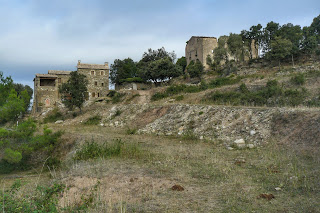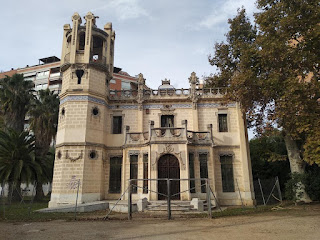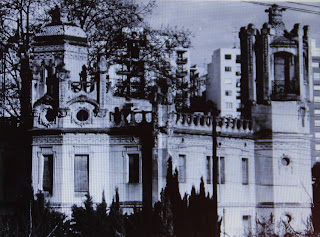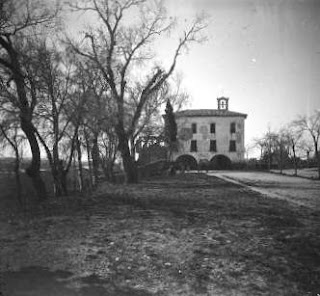The Catholic Church, an instrument of the Roman Empire.
The Catholic Church was an instrument of domination created by the Roman Empire to achieve a higher level of social integration of diverse populations of the Empire, as well as greater social cohesion, including slaves. And the Catholic Universe is a historical continuum manipulation, and mystification, but starting with the drafting of the texts of the New Testament. Catholic apologists have neither a single original text; Greek texts are in the fourth century. As is known, there is no evidence, no documents, no written references or Jesus or the apostles nor alleged Christian communities century I and II. The miracle of the Shroud of Turin has not stood the test of carbon fourteen. Among the vast literary output during the first centuries of the Roman Empire, there is no written order referring to Jesus. Neither poets nor philosophers or historians refer to Jesus or supposed primitive Christian communities. "War of the Jews" by Flavius Josef century I only work describes the Jewish world and its conflicts, do not say anything Jesus or Christians. Describes the different trends and factions of Judaism and social and political conflicts of Palestinian society, but says nothing about the Christians. To address this gap ominous, Catholic apologists decided to make a very serious mystification: add short paragraph of the original Josef, which refers to Jesus in a way forced, as a break that breaks the course the narrative. Although serious historians have noted this manipulation shameful machinery Catholic ideological war presented as true the false testimony to all corners of the world where they can make their voice heard (see criticism on the Internet: The Myth of the Historical Veracity of Jesus, Yehoshua Hajj well, explaining that there are no guarantees of the historical existence of Jesus, but also points out the incompetence of the authors of the Gospels regarding the Jewish world of the first century).
In a decaying Roman Empire, religion could play a decisive role to achieve cohesion and integration of the diversity of peoples. Among a dozen religions of salvation which swept the Empire in the fourth century, Emperor Constantine decided to make Christianity the religion of the Empire. Where it says that the Edict of Milan in 313, authorizing the practice of the Christian religion, but we must emphasize that in Constantine intervened personally like a champion in the expansion of the Christian Church through donations and privileges; he convened the Council of Nicaea in 325. In fact, this church, in effect behave as if it were the official state official who enacted Theodosius, at 380. The Catholic Church became the most formidable instrument integration violent, of course; as soon as the Catholic Church was the official language of the Empire, the other religions were banned and persecuted. But if the political project in Constantine did not stop the collapse of the Western Roman Empire, it showed, however, that the Christian Church made possible the survival of the Eastern Roman Empire, the Byzantine Empire (not in vain the capital, Byzantium, Constantinople and the emperor said they went to the saints of the Orthodox Church as Saint Constantine) for over a thousand years.
Some basic elements of the ideology of the Empire were introduced in the texts of the New Testament, and especially in Acts and the Epistles of St. Paul (the alleged epistles of Paul of Tarsus course are considered unlikely by multitude of serious investigators. See www.skeptically.org). Put another way, the proposed rules through the New Testament agree or strengthen laws and regulations of the Empire. In an empire where slavery was an essential stone of the system, the texts of the New Testament are limited to brief evaluations and recommendations; merely stated that slaves should be good Christians slaves to their masters, who must look to the house, even as a child should be their masters; and the owner Christian should be a good owner. In no writing raises the issue of slavery globally; makes no recommendation Christians owners to free their slaves or improve their living condition. The Roman system of repression was unheard of violence, especially against the slaves; Roman law threatened to permanently genocide (If a slave murdered his master, according to the law, all the slaves of the house or the farm had to be passed by the arms. In the second century, the slaves of Sicily , raised arms, were killed by the army of Rome). Against the wickedness, the Church had nothing to say; not a single demand reform laws genocidal (In contrast, according to the law of the Old Testament, the Jewish owner had to free the Jewish slaves after seven years of servitude. On a morally superior, the Qur'an declares that slavery is forbidden among Muslims). Also, the texts of NT tiptoeing on the question of the foundations of the political and social organization; those apostles supposed merely to say that all authority comes from God and that Christians should be very respectful of the authorities and the law. It seems that turning away a topic before which felt very uncomfortable. Maintain a conservative position on marriage and gender relations and gender. They repeat that the woman must abide by the husband; and young widows should marry again; So it seems fitting that a woman lived alone without depending on anyone.
The Fathers of the Church made an outcry of philosophy on the grounds that the truth is contained in divine revelation. The Roman patricians always expressed its mistrust of philosophical activity; evil eye saw a man who was dedicated to intellectual speculation; only approved studies devoted to the history and rhetoric.
In the New Testament texts are expressing disapproval of the philosophy and those who seek to be wise without God's word. The book of Acts says that Paul went to Athens and exasperated indignation ... seeing that the city was full of idols. ... Discussed in the synagogue with the Jews and the agora ... ... some Epicurean and Stoic philosophers argued with him. From the beginning, without any analysis, given normal and natural for the fact of the division of society into classes and the existence of slavery. In this also coincide with the dominant ideology of the Roman patricians. The novelty of Christian discourse on this issue is the provision of a new rhetoric of exaltation purely religious, mystical nature, which does not contain any proposed change in social conditions. It is the complaint of an unfair system but proposes accepting injustice like a merit in the eyes of God this resigned acceptance of a life enslaved. The concern of the Christian should not be pressed out of oppression, but trust that God will reward with eternal life. The reader is also shocked by current treatment of issues related to health and disease. The apostles have prayer as a great general resource for healing the sick. It gives a strong parallel between Christian morality and the stoic Roman patricians. In general, the texts of the NT affirm the values of the Roman patriarchal society. For Constantin and the power of Rome, the Catholic Church was more than any ideological ally. The Church is deployed as a true parallel power - but at the service of political power - even reaching targets moral and ideological control, integration and social cohesion could never achieve imperial power directly. In the strong support of Constantine, even using coercion and promises of resources materials, the Catholic Church managed to attract the masses of big cities. The Universe Catholic official history of the Catholic Church presents the spread of Christianity as a result of the goodness of the Christian message and the lure of life model of supposed primitive Christian communities - communities that never existed or could exist -. Worldwide ancient Roman cities, villages, or nations, religion and social and moral standards were inextricably linked, forming a social whole. The Roman Empire was weakened when it destroyed the local social and moral norms imposing laws and regulations of the Empire. In a defining moment of change of the historical process, in the fourth century, the cities and towns decided of assemblies - or assembly of notables - adopt a new religion based on the interests of the city or nation (There is abundant literature showing how nations invading Germanic Roman Empire decided to change the language and religion in order to consolidate their gains. with an incredible Machiavellianism, the Frankish king and the assembly of nobles adopt Christianity as a new religion francs. you can see more details on my blog in Web Second Quetgles). The debate in the cities of the Empire to decide whether or not to adopt Christianity was not a theological debate or mystical themes, but what are the gains that would obtain if so or otherwise damages that follow. The Christian Church constantina offered in the cities and more security protection, greater assurance regarding the provision of food easier for citizens to obtain civil rights, granting tax privileges, granting advantages to access charges bureaucratic state, etc. The idiosyncrasy of the towns and cities vanished and was replaced by logos of the Catholic Church. Thus obtained homogeneous make the cities of Empire: Religion, morality, language - Latin West and the Greek East - civil law, family and civic celebrations. While wearing the brand of Christianity. Christianity became the hallmark of nationals of the Empire. Immediately, at Persian rulers took note of this new nationalism Christian and took measures to prevent the propaganda of the Catholic Church within the Persian Empire.
![[18/04] «La Justicia Humana» - «We have fed you all a thousand years» -...](http://www.estelnegre.org/fotos/martinezdubal.jpg)








![[13/04] «L'Alarme» - «L'Anarchie» - Atemptat contra Alfons XIII - «La Plèbe»...](http://www.estelnegre.org/fotos/congresido1930.jpg)








